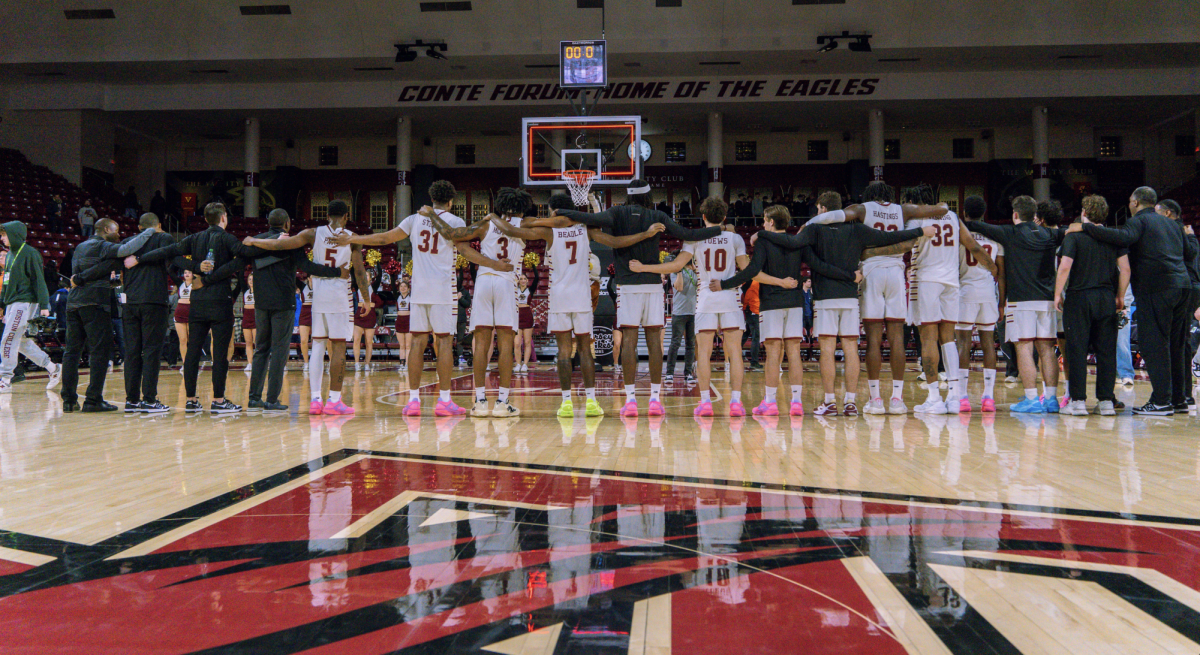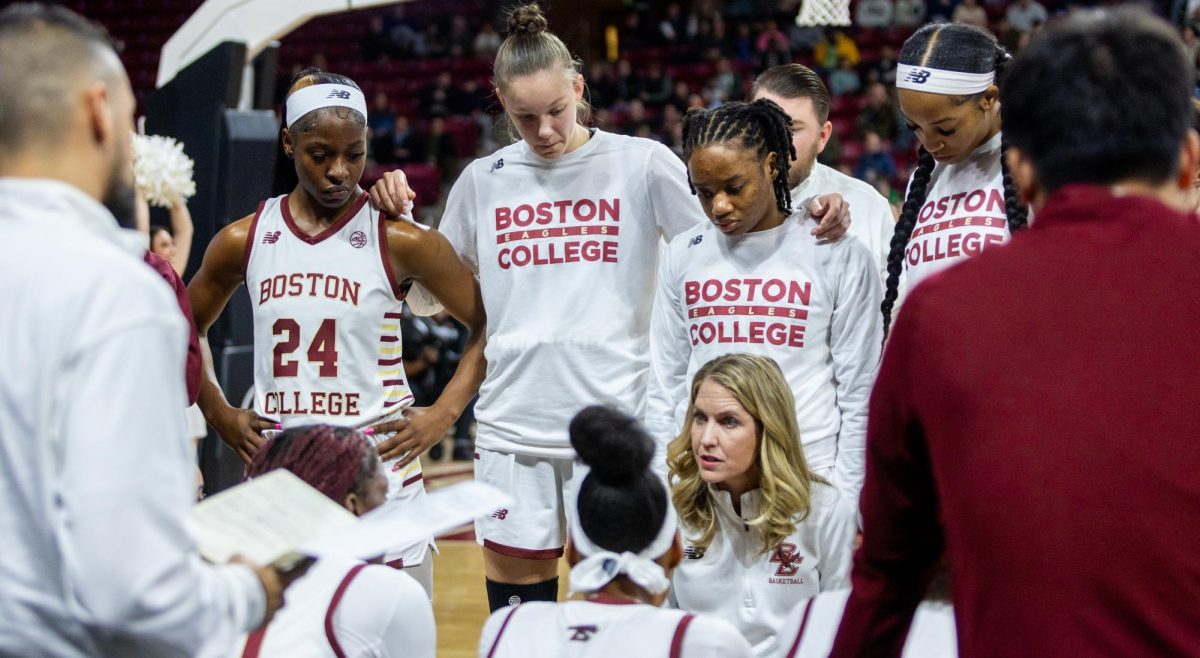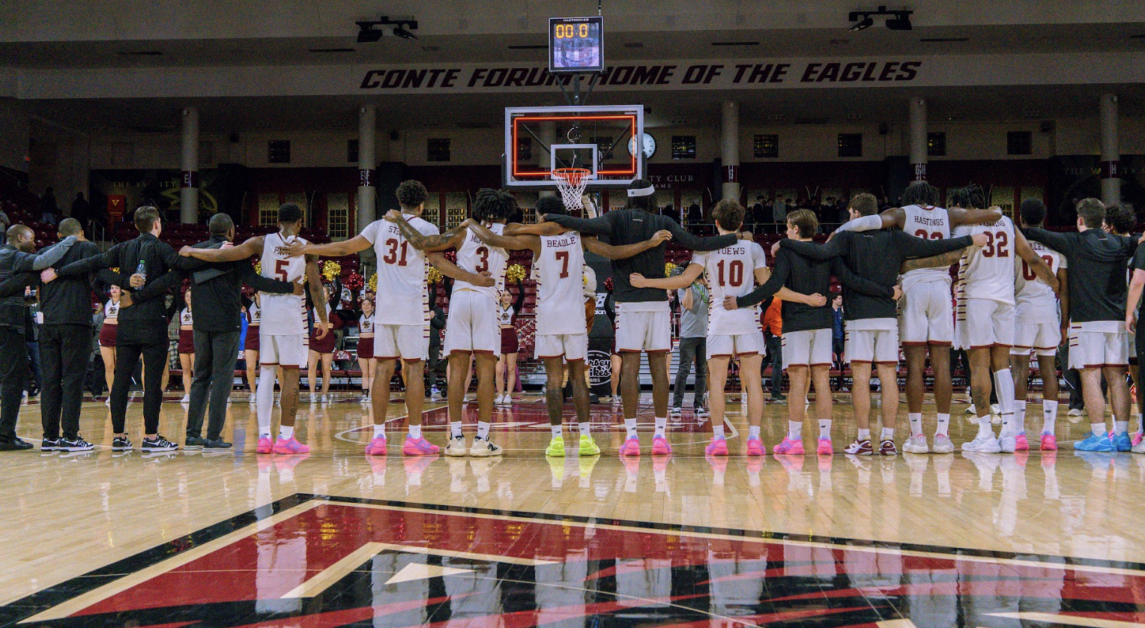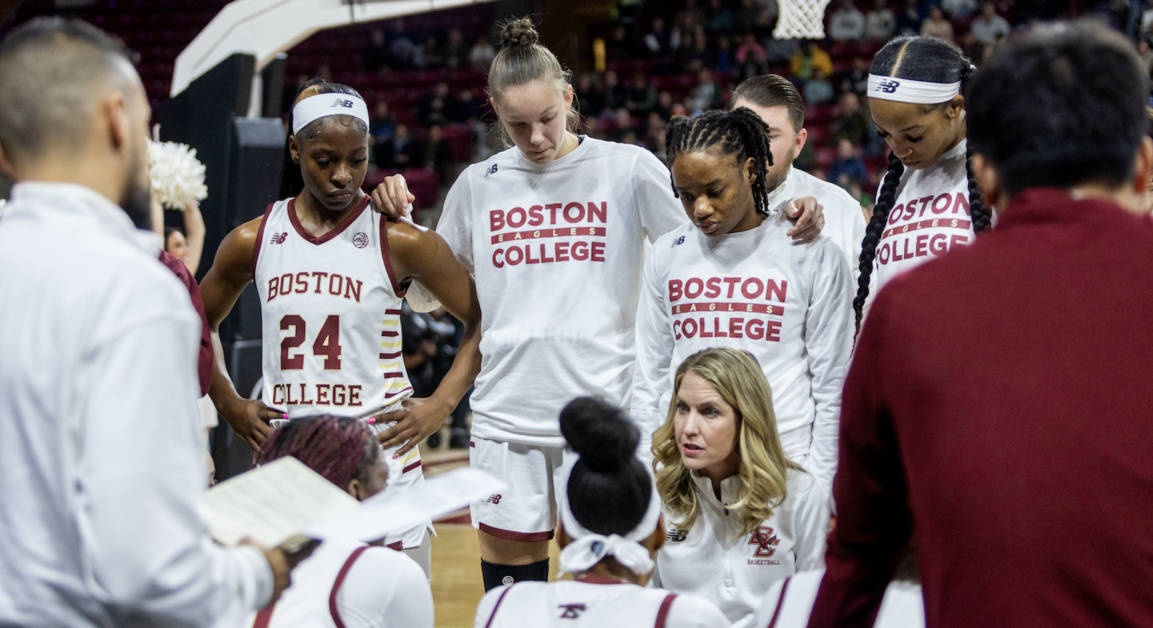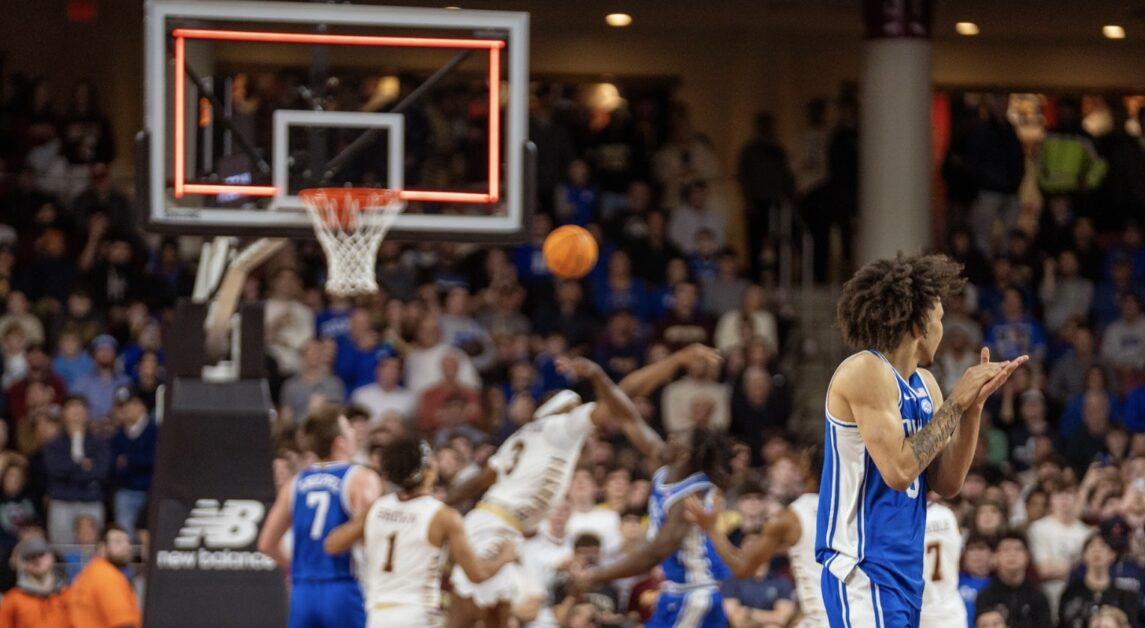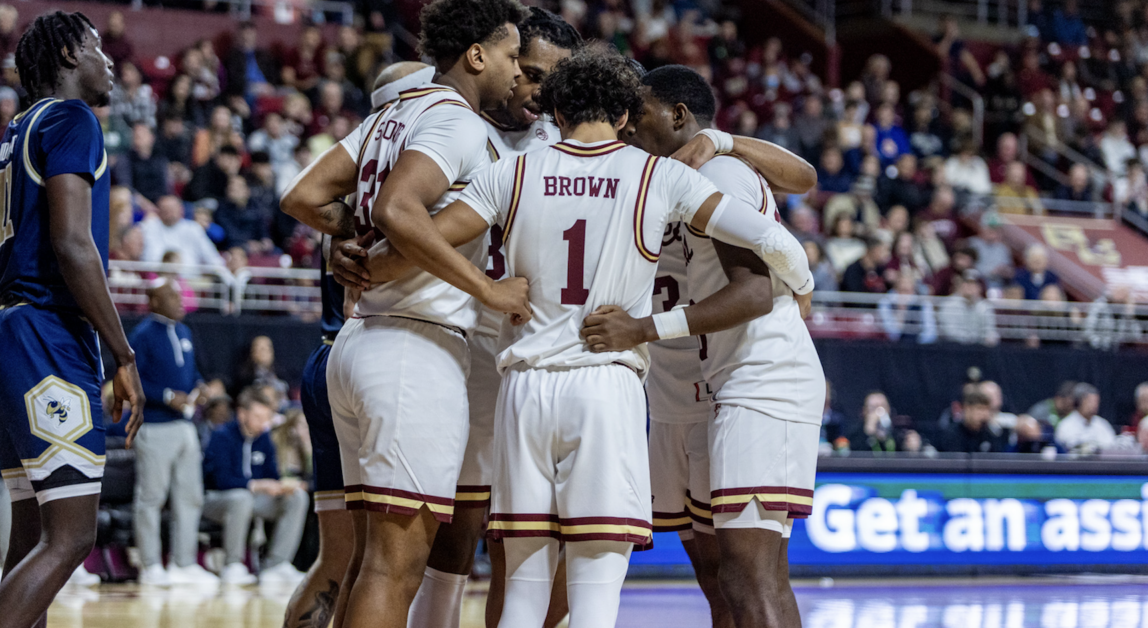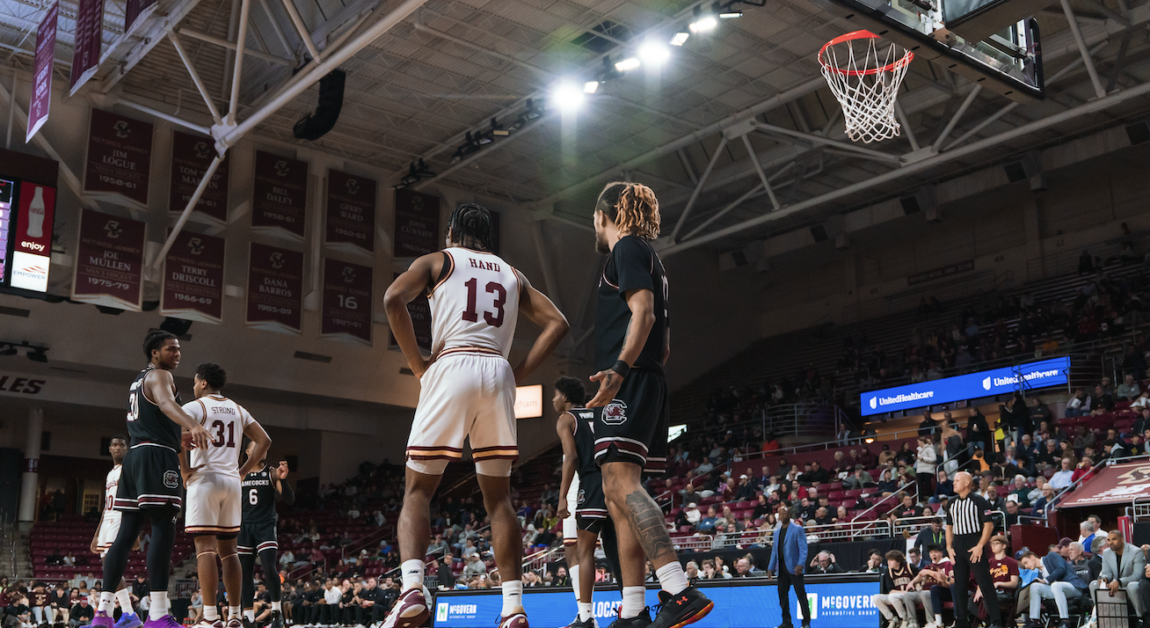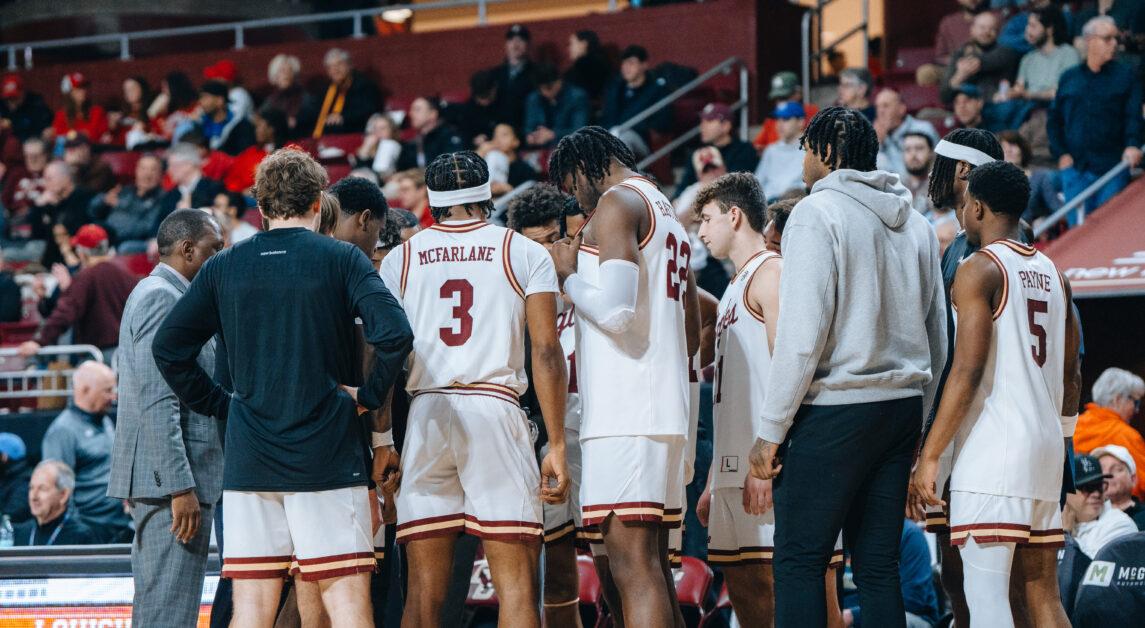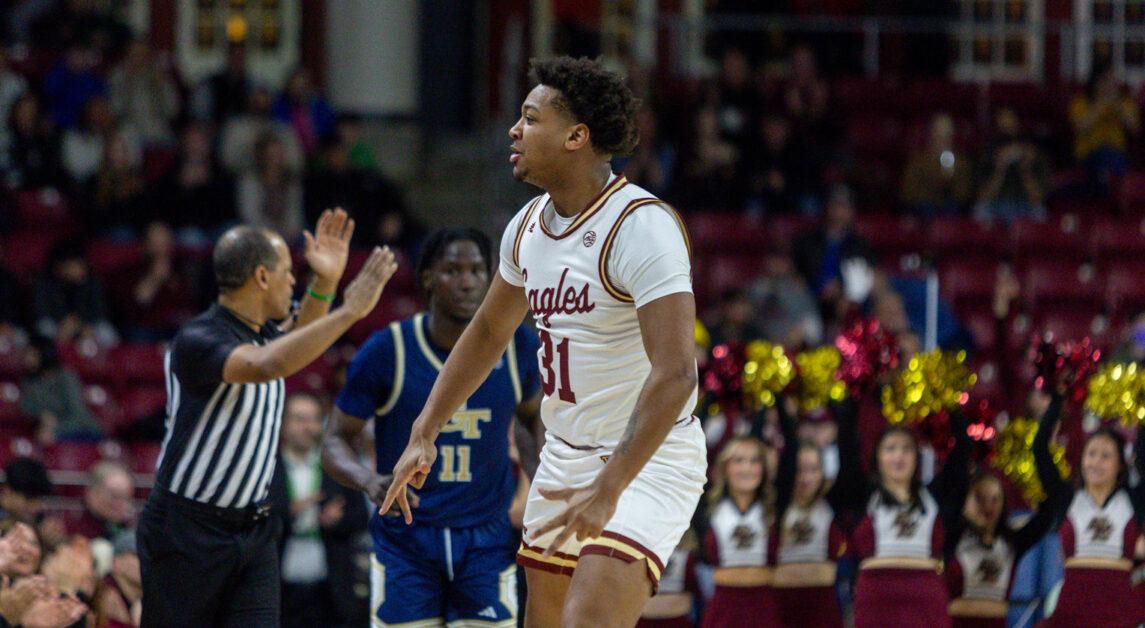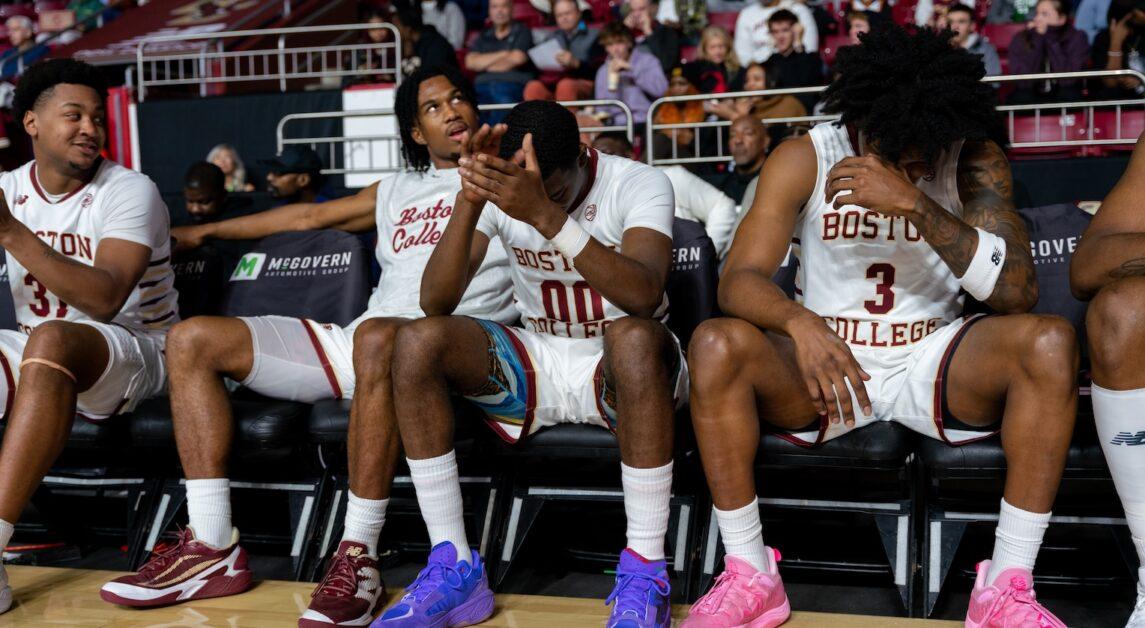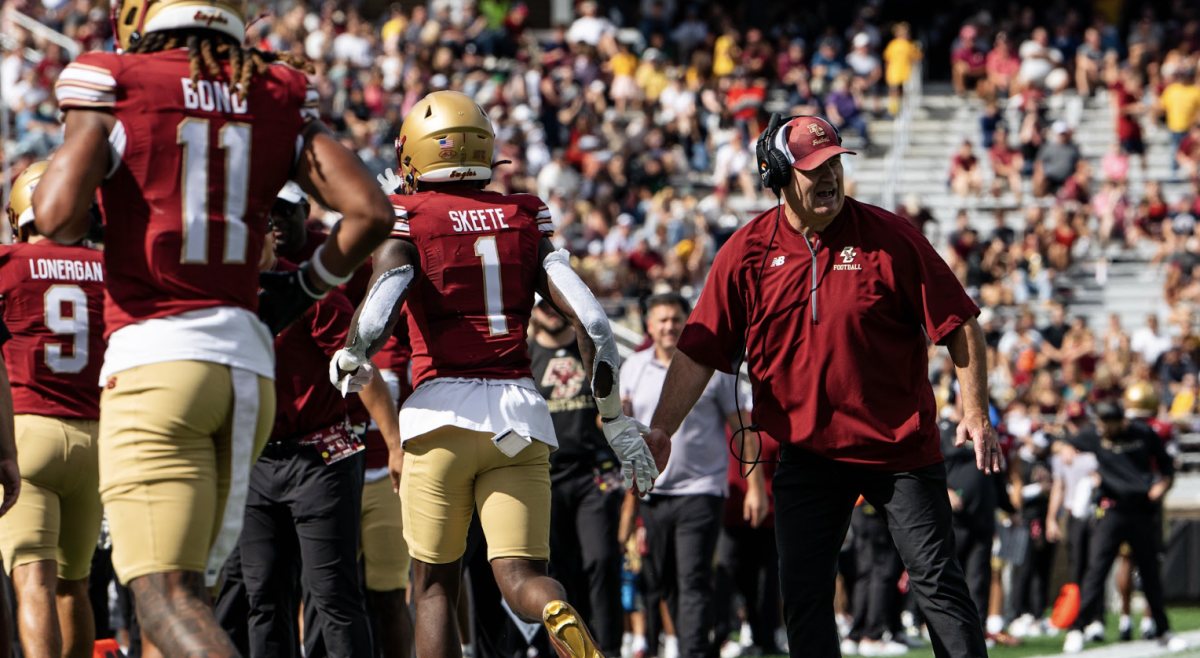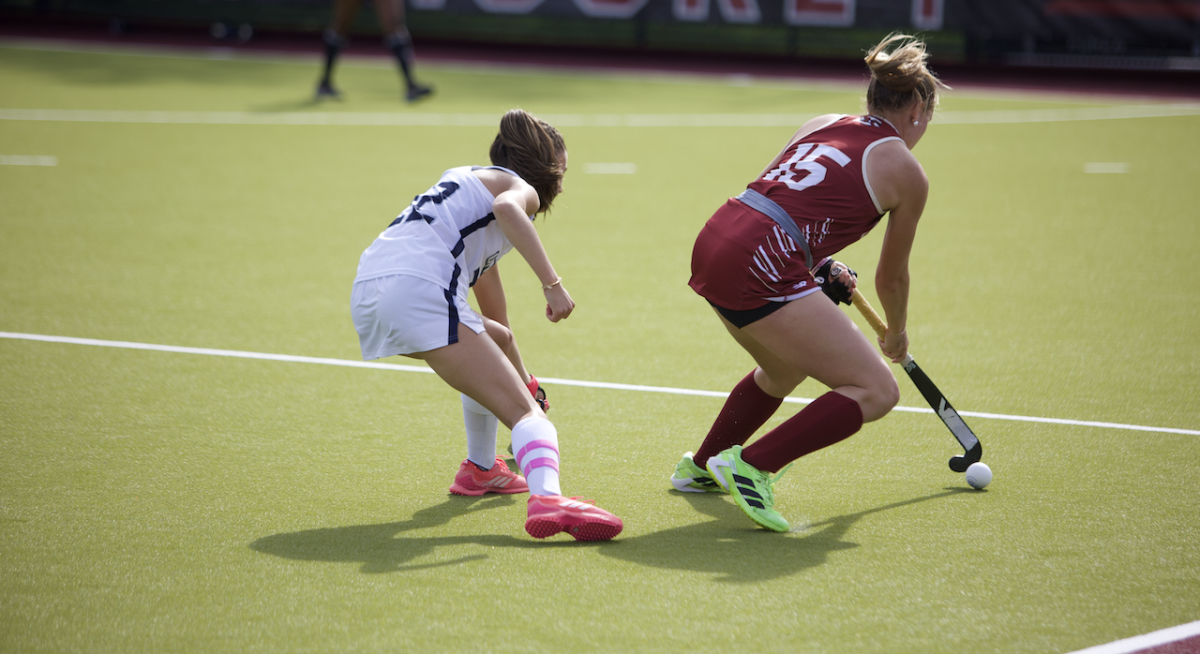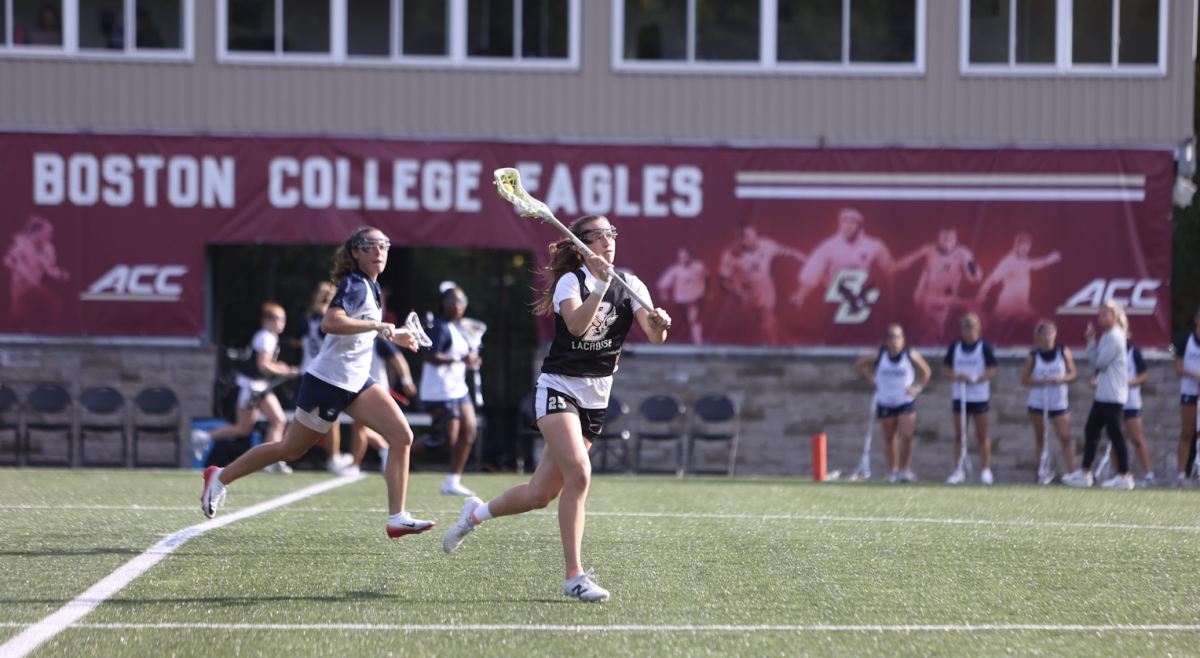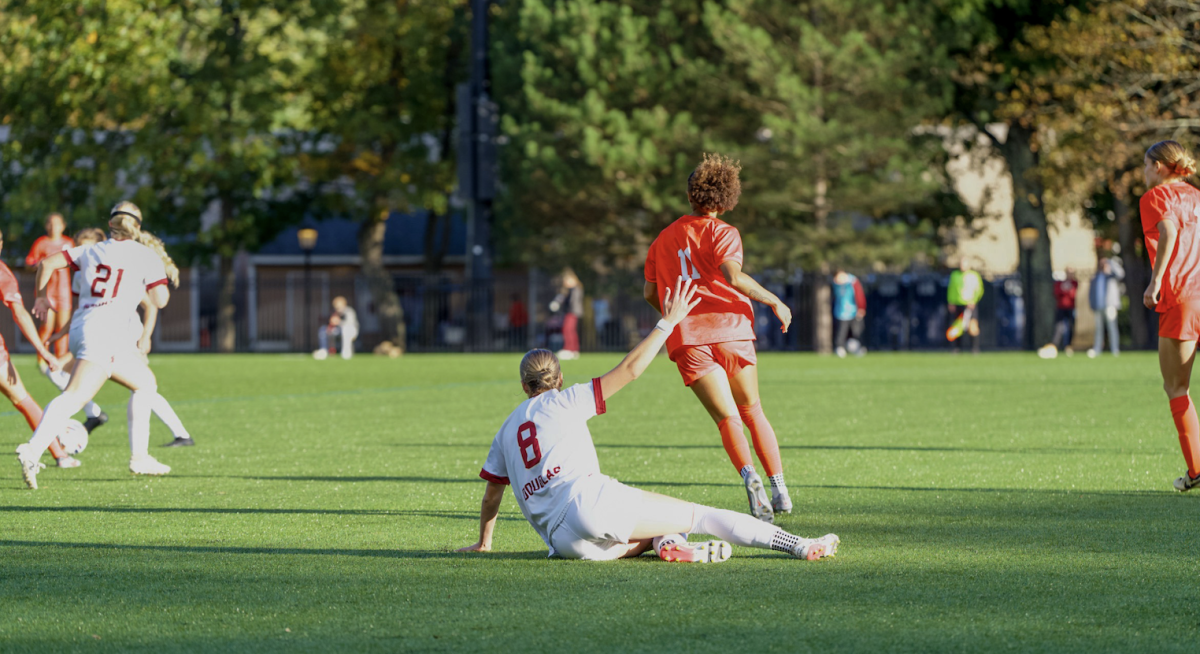With Duke coming off of three weeks without a game and head coach Mike Krzyzewski in quarantine due to COVID-19 protocols, Boston College men’s basketball (2-8, 0-4 Atlantic Coast) was perfectly poised for an upset over No. 21/23 Duke (4-2, 2-0) on Wednesday in Durham.
After an explosive start led to a 16-point lead for BC in the first half, it seemed that the Eagles were set to beat Duke in Durham for the first time ever. Coach K’s absence, however, did not stop Duke from making halftime adjustments. The Blue Devils came out of the gates hot in the second half, quickly erasing BC’s lead and eventually securing a narrow 83-82 victory over the Eagles.
Such heartbreak has become all too familiar for the Eagles. Wednesday was not the first time BC has lost a substantial lead. Earlier this season, the Eagles led Minnesota by 15 and then-No. 3 Villianova by nine at one point during their respective games. Both leads came in the second half, and both ended in losses for BC.
Against Duke, BC’s largest lead came in the first half. The Eagles started the game with three straight 3-pointers before a series of 2-point plays gave BC an 18-11 lead just over five minutes into the first half. Duke narrowed BC’s lead to one by scoring six straight, but BC reclaimed the momentum with an 11-0 run, bringing the score to 29-17.
Quinnipiac transfer Rich Kelly earned his first start in a BC uniform Wednesday and scored 10 points in the first 10 minutes of the game. Kelly bolstered BC’s attack from behind the arc, and he contributed to two of the Eagles’ five first-half 3-pointers. BC’s biggest lead of the half—and of the game—was 16 points, but by halftime, Duke had begun to chip away, and BC led just 43-35 at the break.
With 17:59 on the clock in the second half, Duke tied the game at 46 apiece.
The Eagles and the Blue Devils traded the lead back and forth for the remainder of the second half until Duke took a three-point lead—its largest of the night—with 1:31 on the clock. After a few turnovers and calls in Duke’s favor, CJ Felder brought the game within one point with a second left to play. The Eagles could not foul fast enough to have a chance at a buzzer-beater and fell 83-82 in a game they once led by as much as 16.
“We were a little careless,” BC head coach Jim Christian said. “We made some tough decisions especially early in the second half to give them momentum. I thought we did a great job fighting our way back but … when you turn [the ball] over 21 times at Cameron [Indoor Stadium] it’s tough to win.”
Turning the ball over has been an issue for BC all season. The Eagles have yet to go a game without double-digit turnovers, and though 21 is a season-high, BC has turned the ball over more than 15 times in six games so far this season. Duke took advantage of the Eagles’ weak spot with 25 points off of turnovers.
“You gotta give them credit—it’s not only us. There are two teams out there playing,” Christian said. “They made some plays, we turned the ball over. I give them credit—that’s how they play. They feast off turnovers, and we knew that coming in.”
Felder led the offensive attack for the Eagles with 24 points in just 27 minutes, and all of BC’s starting five scored double-digit points. Wynston Tabbs—BC’s leading scorer going into Wednesday’s game—was not one of those five.
“Wynston’s body’s been hurting him,” Christian said. “He didn’t practice for two days and we’ve got to be really cautious with his body. His body after the last couple of games wasn’t recovering the way we’d like … and knowing when to stop is important.”
Prior to this season, Tabbs missed 676 days including all of last season with a leg injury. He emerged this year as the leader of BC’s offense and is starting to build a resume worthy of Comeback Player of the Year consideration.
Though BC could not hold its early lead, it did show flashes of defensive and offensive ability. Its zone defense was effective through the first half, and the Eagles shot 56.3 percent from behind the arc. The impressive offensive numbers by all five of BC’s starters proved the Eagles’ ability to distribute scoring and take advantage of depth, and though a close loss is still a loss, BC proved—as it did against Villanova—that it can compete with ranked teams in hostile environments.
Featured Image by Kait Devir / for The Heights


